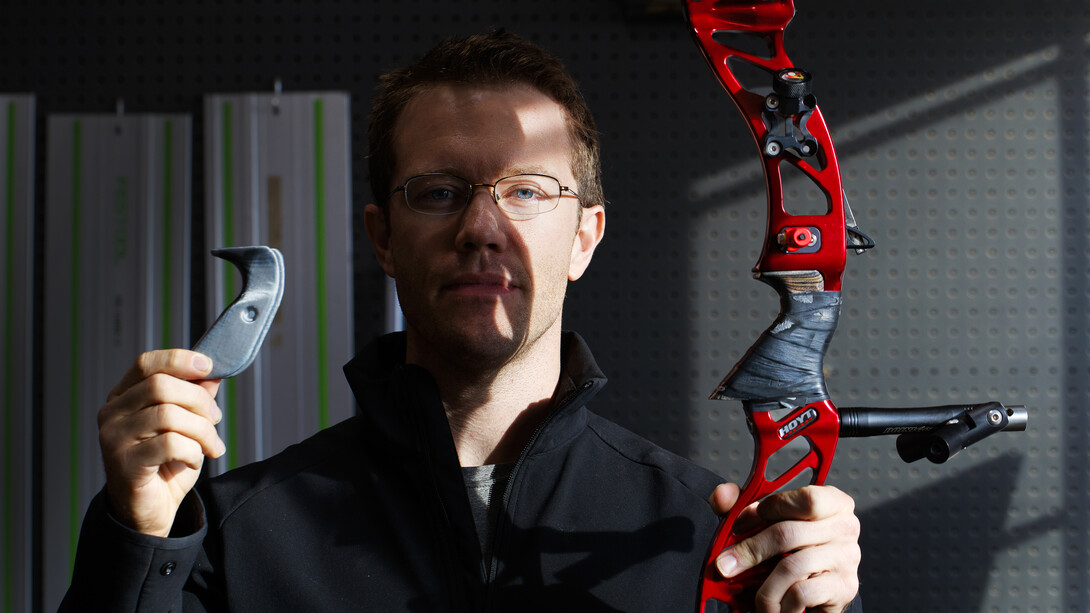
As the winter Olympics wrap Saturday, a Husker alumnus is looking ahead to the 2020 Olympic games, with the goal of representing the United States in archery at the Tokyo games.
David Wolfe, a 2017 University of Nebraska-Lincoln business graduate, is currently training at the Chula Vista Elite Athlete Training Center in Chula Vista, California, under the tutelage of Kisik Lee, the head coach for the United States Olympic Archery Team.
Wolfe’s one of 12 archers – six male and six female – selected to train as resident athletes in Chula Vista through the archery Olympic trials. If he succeeds at the trials, he’ll continue training at the center until the 2020 games.
Wolfe is still amazed he’s risen to the top of the national ranks, after only starting the sport while in college a few years ago, after a co-worker suggested archery as a fun lifetime sport for him.
“I’ve done sports all my life and I wanted to continue to compete at a high level,” he said. “Archery takes discipline and focus and it’s a body and mind sport.”
Wolfe said he was immediately hooked and started traveling to club meets in other states. He showed continuous improvement and quickly found success – and caught the eye of Lee’s team.
Lee, the most successful coach in modern times, has been credited with applying science to archery training, incorporating scientific research of technique, body control, muscular requirements and mental acuity.
Much like the coach, Wolfe is actively using science, technology and design to improve his performance by taking advantage of Nebraska Innovation Studio’s state-of-the-art equipment to fabricate a personalized bow grip and finger tabs. Wolfe said the personalized grip and finger tabs could improve precision.
“The equipment we use is so specific to our hands,” Wolfe said. “The bow needs to become an extension of your body, which means it needs to mold to your hand.”
The idea for constructing his own grips and finger tabs came to him when he went to Nebraska Innovation Studio for the first time as a student. He was blown away by the possibilities represented by the studio.
“Everyone, especially students, should check this place out,” he said. “There is nowhere else where you can take your ideas and turn them into a tangible product.”
After graduating with highest distinction in May 2017, he continued many hours in the makerspace, scanning different grips, and then printing and reprinting on the 3-D printers. With each grip, he adds epoxies or other materials to continue the molding process before scanning and printing it again. Much like the sport itself, designing the grip takes persistence and dedication, he said. Wolfe hasn’t perfected his grip yet, so he’ll be back at NIS whenever he has breaks from training. He said the things he learns about bio-mechanics and bow engineering during training will likely further his understanding of how he should design the grip and finger tabs.
“I’ll learn a lot and potentially that will translate to equipment improvements I can make myself,” he said.







